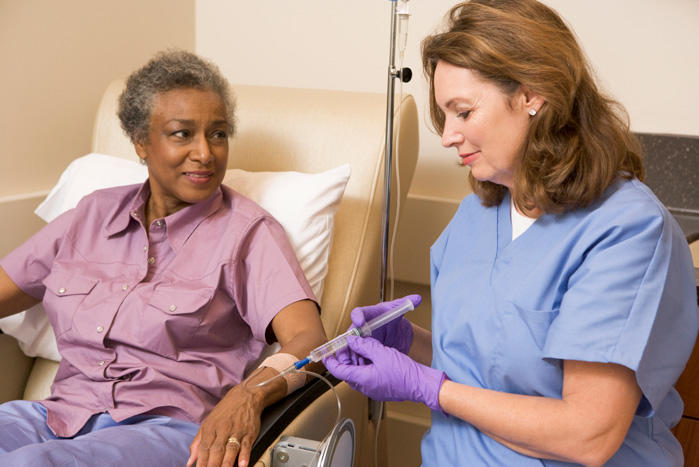An experimental drug is one that has been tested in the lab and with animals and approved for testing in people by the U.S. Food and Drug Administration (FDA). But, such a drug can’t yet be advertised, sold, or prescribed. Experimental drugs may also be called “investigational drugs.”
Experimental drugs may be available through clinical trials, expanded access, or right to try.
Clinical trials
The most common and preferred way to access an experimental drug is through a clinical trial. Clinical trials are research studies that involve people. Trials are carefully designed to answer scientific questions about the new drug. People who take part are fully informed and carefully monitored. The data that are collected during a clinical trial help researchers learn how the drug behaves in people, if it is safe and effective, or how it compares to standard treatments.
See Clinical Trials Information for Patients and Caregivers to learn more about clinical trials and how to find one for which you may be eligible.
Expanded access (compassionate use)
Expanded access, which is also called compassionate use, is the use of an experimental drug outside of clinical trials to treat people with serious or life-threatening diseases. It is regulated by the FDA. If you meet certain criteria, you might be able to obtain an experimental drug through expanded access. To qualify, you must
- have an illness that is life-threatening
- have no standard treatments available
- not be eligible for a clinical trial
How to obtain a drug through expanded access
The only way to obtain a drug through expanded access is with the help of your doctor. Your doctor will need to
- Ask the company that is developing and testing the experimental drug if it is willing to provide it for you. The company may not be willing to provide the drug if it believes that doing so is against its interests or if there isn’t enough drug available.
- Apply to the FDA, if the drug company agrees to supply the drug. Your doctor should refer to Expanded Access: Information for Physicians on the FDA site for complete information.
How your safety is protected if you obtain a drug through expanded access
Several measures help protect your safety if you are treated with a drug through expanded access.
- An Institutional Review Board or its representative must approve the use.
- The FDA must approve the use.
- You will go through an informed consent process to ensure that you understand the potential risks and benefits of taking the experimental drug.
Right to try
Right to try, like expanded access, allows the use of an experimental drug outside of clinical trials to treat people with serious or life-threatening diseases. But unlike expanded access, it is not regulated by the FDA.
If you meet certain criteria, you might be able to obtain an experimental drug through right to try. These criteria include
- You have an illness that is life-threatening.
- There are no standard treatments available for you.
- You are not eligible for a clinical trial of the drug.
The drug that you are seeking must meet certain criteria, as well. These criteria include
- It has already been studied in a phase 1 clinical trial.
- It has not been approved by the FDA for any use.
- The company that owns it has applied for FDA approval or is running a clinical trial to further study the drug before seeking approval.
How to obtain a drug through right to try
The only way to obtain a drug through right to try is with the help of your doctor. Your doctor will need to consult with the company that is developing and testing the experimental drug to find out
- if the drug is eligible for use through right to try
- if the company is willing to provide the drug, which it is not required to do
How your safety is protected if you obtain a drug through right to try
Before you are treated with a drug through right to try, you will go through an informed consent process to ensure that you understand the potential risks and benefits of taking the experimental drug.
Deciding on treatment with an experimental drug
Your doctor is in the best position to help you understand all your treatment options.
As you think about your options, keep in mind that there may be unknown serious side effects with experimental drugs. Also, cost may be an issue. Federal law requires most insurance plans to cover routine patient care costs related to taking part in a clinical trial. But your insurance may not cover the cost of an experimental treatment received outside of a trial.
Our list of Questions to Ask Your Doctor about Clinical Trials may help you talk with your doctor about taking part in a clinical trial.
